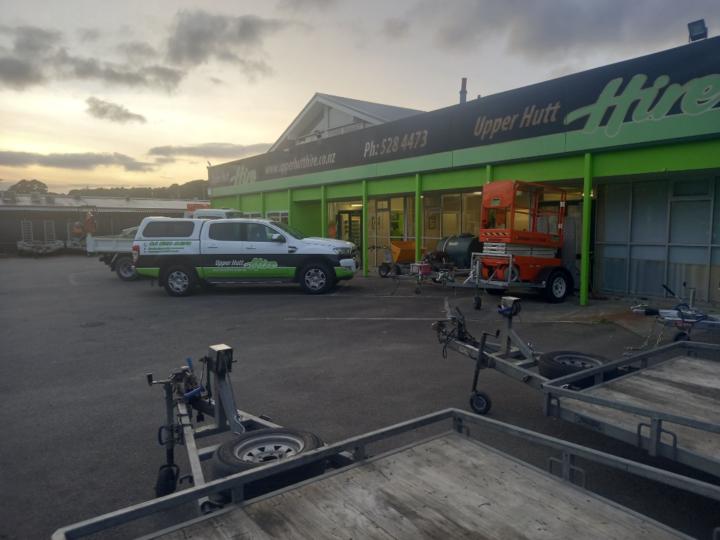Activity
Mon
Wed
Fri
Sun
Feb
Mar
Apr
May
Jun
Jul
Aug
Sep
Oct
Nov
Dec
What is this?
Less
More
Memberships
Equipment Rental Mastery
12 members • Free
5 contributions to Equipment Rental Mastery
Inventory Purchase Decisions
I track two key metrics to guide my purchasing decisions: 1. The number of missed rentals per month 2. The number of times I’ve had to re-rent per month I won’t make a purchase decision unless I have at least three consecutive months of data showing that machine would have met my base utilization for profitability. I’d love to hear the group’s thoughts on this approach. Does this align with how you evaluate potential purchases? And what metrics do you rely on to make those decisions?
0 likes • Oct '25
I think you have to look at the profitability of gear over more than 3 months, especially during different seasons. We are mid Spring in New Zealand, with lots of interest in scarifiers and lawn aerators, builders hiring dehumidifiers to get timber framing moisture levels to legislated levels and most of our excavators sitting in the yard. We purchased a large all-terrain snorkel scissor lifter in February but it's only just started to take off now. I also have a spot on our whiteboard for our daily toolbox meetings, to list 'missed hires'. It doesn't get filled out very often, unless one of the team is really keen on acquiring a new piece of kit.
How Do You Determine Initial Pricing?
I’m curious how everyone here determines their initial rental pricing. For me, I run every potential purchase through a spreadsheet before I buy. It calculates daily/weekly/4-week rates based on my projected cost to keep & fleet life expectancy, and shows how many rentals at each duration I’d need to hit my monthly return goals. Only after that do I check competitor pricing. The only time their numbers matter is if mine come out so far above theirs that it feels unreasonable, or if the utilization required is unrealistic. As a general rule, I don’t care what my competitors charge. Too many people in this business (and others) set prices based on “market rates” and then wonder why they can’t make money. I get that we are in a somewhat 'commoditized' market, but we can't simply assume the guy down the streets decisions will serve us well. If your numbers say you need to charge $150/day but the guy down the road is at $100/day, you’ve got two options: - Rent it at $150 and prove the value to your customer, or - Skip the purchase and move on to something that makes more sense to your business. For all we know, that guy down the road is just chasing fast cash and isn’t building a profitable business. Why chase him to the bottom?
Lesson in value and sales
I’ve always found sales to be difficult. There have been multiple reasons for this. Bad experiences with unethical salesmen, a childhood mentors aversion to salesmen, a misunderstanding of what it means to sell, etc. etc.. But I’m realizing something the more I learn and focus on building this skill. When you have something of true value to offer, sales becomes natural. When I know the person buying will benefit, and the benefit they receive outweighs the money they exchange, what kind of person would I be if I did not put effort into helping them see that. In other words, it is actually in the customers best interest for me to be a good salesman, with strategy tactics and all, when I have the right offer.

1 like • Sep '25
In my book there are three types of salesmen: the hunter, the grocer or the engineer. The hunter lives for the thrill of the kill, will close a sale regardless of whether it is right or beneficial. The grocer waits patiently for people to come into his store and has one price. The engineer asks questions. Finds out the problem then trys to come up with the solution. It's challenging but also a lot of fun!
How are you creating customer continuity?
Alex Hormozi’s 4th money model is continuity offers. This means “providing ongoing value that customers make ongoing payments for - until they cancel.” How are you applying this specifically to your rental business?
1 like • Sep '25
We are lucky with our position. We have a community of around 50000 and our nearest competition is about 20km away. We don't refer to them by their name, rather 'the Australians'. We buy local, including trailers and power tools, even if it costs a fraction more. The referrals from the local stores is worth it. Use a lot of social media about our team and new gear.
Pricing structure feedback
I polled my facebook audience recently and asked the if they would prefer a weekend discount or additional hours. There wasn’t a huge response but all responses were for extra hours. This has me thinking about possibly changing our weekend use policy. Currently we charge for a 1 day rental with the standard 8 hrs run time. Additional hours are pro-rated using the daily rate. I’m considering the idea of upping the weekend usage to 12 hours and upping the rate to equal 125% of daily. Essentially giving 2 hours for free or 4 hrs 50% off (which is how I would market it most likely.) How do you guys currently handle weekend rates and usage? Have you ever done something similar?
1 like • Sep '25
We started our business here in New Zealand by appealing to the DIY weekend warriors, and it was enough to get us paying wages for the crew. But as time as gone on I've realised the best return is working closely with the smaller tradesmen and contractors, Monday to Friday, and ensuring we have the gear they need. They tend to hire for longer period and place a greater emphasis on reliability and age of the machinery rather than hours or rates. To your question: leave it as it is. From my perspective I don't think it will make a significant difference to your annual results. There's better pickings during the work week.
1-5 of 5


